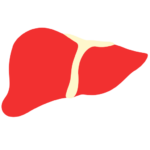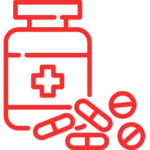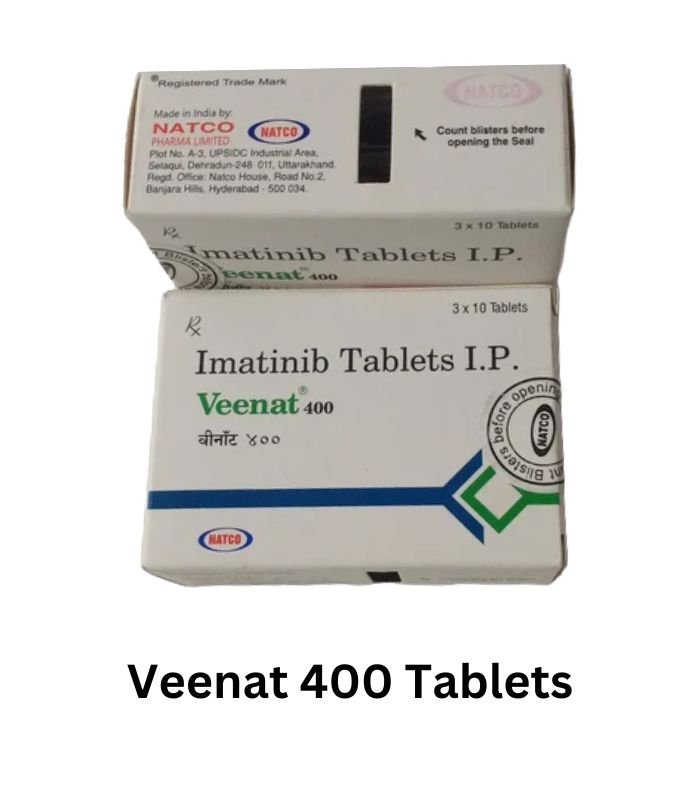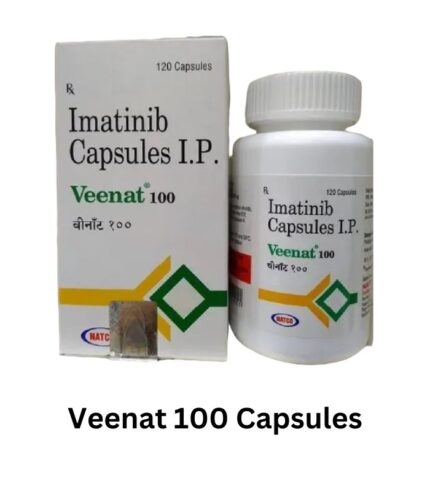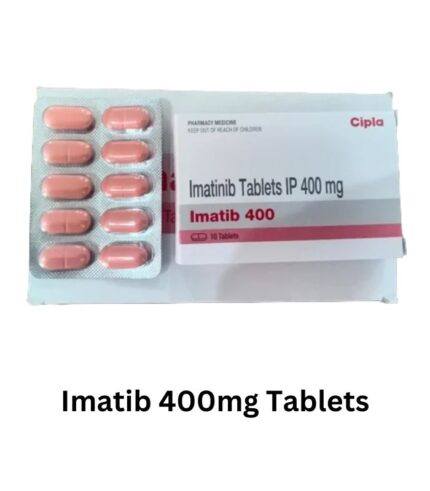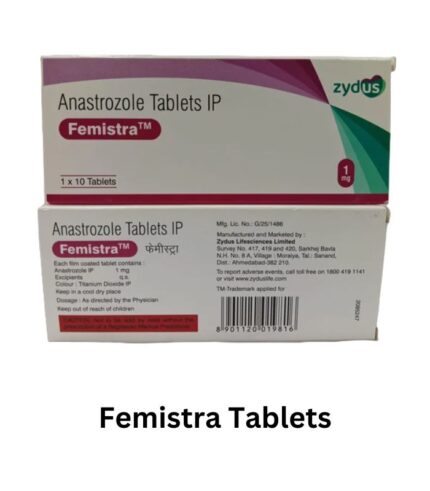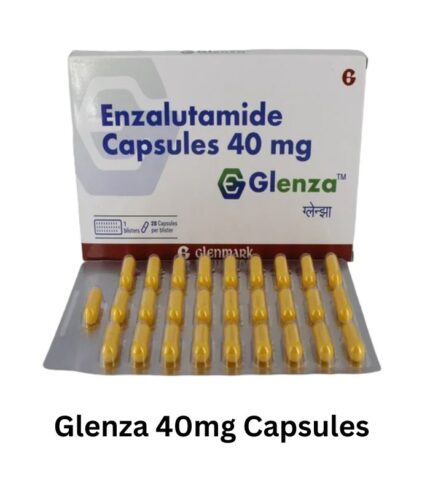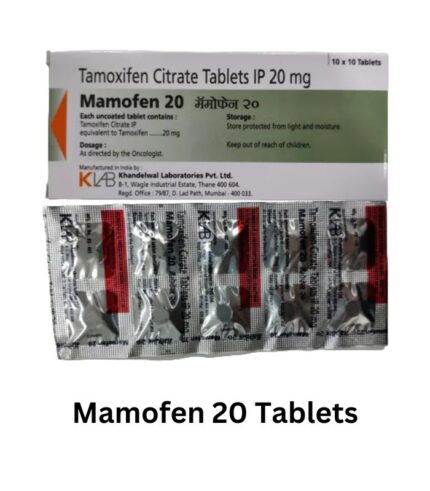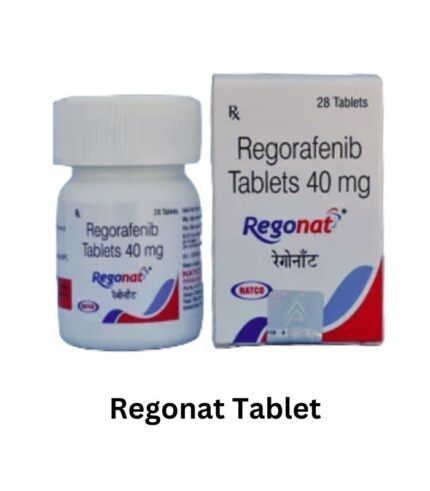Introduction of Veenat 400 Tablet
Veenat 400 Tablet is a powerful anti-cancer medication used primarily to treat various cancers, including chronic myeloid leukemia (CML), acute lymphocytic leukemia (ALL), and gastrointestinal stromal tumors (GIST). Additionally, it is effective for certain skin and bone marrow conditions. The tablet should be taken with food at the same time every day to maximize its benefits. It is essential to continue the treatment for as long as prescribed by a healthcare provider, as the duration of treatment varies based on individual needs and responses.
Salt Composition of Veenat 400 Tablet
- Active Ingredient: Imatinib
- Strength: 400mg
Uses of Veenat 400 Tablet
- Treatment of various cancers, including:
- Chronic myeloid leukemia (CML)
- Acute lymphocytic leukemia (ALL)
- Gastrointestinal stromal tumors (GIST)
- Dermatofibrosarcoma protuberans
- Aggressive systemic mastocytosis
Benefits of Veenat 400 Tablet
- In Cancer Treatment: Veenat 400 Tablet effectively targets specific proteins involved in cancer cell growth, specifically the bcr-abl tyrosine kinase. By inhibiting these proteins, the medication can slow down or halt the proliferation of cancer cells, helping to shrink tumors and improve symptoms, thus enhancing patients’ quality of life.
Side Effects of Veenat 400 Tablet
Common side effects may include:
- Edema (swelling)
- Nausea
- Vomiting
- Muscle cramps
How to Use Veenat 400 Tablet
Take Veenat 400 Tablet as directed by your doctor. It should be swallowed whole with water, without chewing, crushing, or breaking. For optimal absorption, take the tablet with food.
How Veenat 400 Tablet Works
Veenat 400 Tablet works by inhibiting the bcr-abl tyrosine kinase enzyme, which is crucial for the growth and abnormal proliferation of cancer cells. By blocking this enzyme, Veenat induces apoptosis (programmed cell death) in bcr-abl positive cancer cells, effectively slowing or stopping cancer progression.
Safety Advice for Veenat 400 Tablet
- Inform your healthcare provider about all medications you are currently taking to avoid potential drug interactions.
- Regular monitoring of blood cell counts and liver function tests may be necessary during treatment.
- This medication is not recommended during pregnancy or while breastfeeding.
- Effective contraception should be used to prevent pregnancy during treatment.


